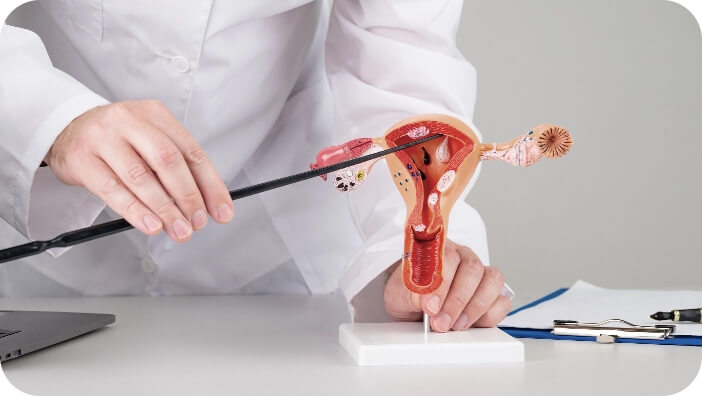Gynecologist in Plantation, Florida
Our gynecology specialists treat patients of various ages, from adolescents to seniors.
All aspects of sexual health, family planning, menstruation, birth control, and menopause are addressed in the context of routine gynecology care, with an emphasis on the patient’s individual needs and concerns.
It is important to us that you feel safe and comfortable with your gynecologist, as the conversation will inevitably entail sensitive personal details.
Our mission is to be your go-to gynecological and reproductive health partner for life.


What Is Gynecology?
Gynecology is the medical practice dealing with the health of the female reproductive systems and the breasts. Outside medicine, the term means “the science of women.” Its counterpart is andrology, which deals with medical issues specific to the male reproductive system.
When to See a Gynecologist?
Apart from regular gynecology exams, it’s important to visit a gynecologist if you experience any of the following:
- Pain or pressure in the pelvis, vagina, or vulva
- Constant or severe menstrual cramps and bleeding
- Abnormal menstrual bleeding/discharge
- Vaginal redness, soreness, or itching
- Discomfort or incontinence resulting from bowel or bladder movements
- Painful sexual intercourse
- Vaginal dryness
These signs could indicate a gynecological problem that may threaten your reproductive health. Although some women avoid seeking medical attention due to the shame associated with their symptoms, you should know that many common gynecological problems are easily treatable.
How to Make the Most Out of Your Gynecology Exam?
Start by writing down your symptoms before coming in for a gynecology exam. It’s natural to focus on the more severe symptoms, but it’s also crucial to note the less obvious ones, including poor sleep, thirst, weight fluctuations, etc., so that our gynecology specialists can make a more informed diagnosis. Leave it up to them to judge if a symptom warrants attention.
If you think there is anything else worth mentioning, prepare to share it with the doctor. Medication history (both prescribed and over-the-counter), allergies, and similar symptoms in your immediate family or place of employment are all relevant factors.
Prepare any questions you might have about your health or our gynecology services. When you talk to our gynecology specialists, remember to speak freely.
Expert Gynecology Care
At Broward Complete OB/GYN Wellness Center, our team of gynecology specialists offers comprehensive and personalized gynecology care to females of all ages, from routine gynecology exams and prenatal care to more serious health conditions. Our highly-trained, multidisciplinary team of experts is well-prepared to treat the changing healthcare needs of women as they pass through the various phases of their lives.
Please see below for a full list of gynecology services offered.




